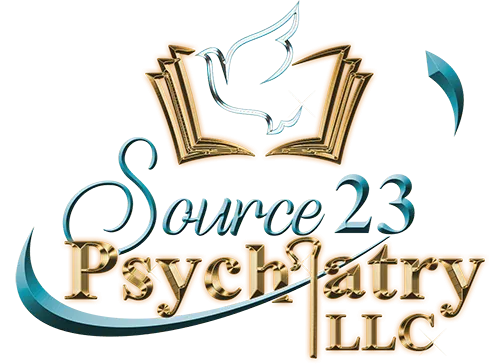Why Autism Diagnoses Are Often Delayed
Many medical issues affect children, including autism and ADHD; however, doctors often misdiagnose autism for other conditions. Keep reading to learn why providers often miss autism in kids and how to notice the signs early on.
Autism is a growing condition among children that makes it hard for them to enjoy normal childhood activities. Your child might need help keeping friends or seem disinterested in activities most other children love. They can also have extreme sensitivity to loud noises or other stimuli.
Unfortunately, doctors don't always diagnose autism quickly, which leads to them not getting the help they need to succeed in their early years.
Getting your child the help they need for autism is what Kimberly Gilbert, MSN, APRN, PMHNP-BC, and the team at Source 23 Psychiatry strive to do. Ms. Gilbert is a psychiatry specialist who offers virtual appointments to give your child a quick diagnosis and expert treatment.
Understanding autism
When a child has autism, it affects the way they're able to communicate and interact with others. The condition also leads to repetitive behavior and an innate focus on specific interests.
Autism is a developmental problem that's often lifelong but usually found in early childhood. However, not every child with autism suffers the same types of impairments as others.
Typically, you notice the signs of autism within the first year of your child's life. However, some children don't exhibit noticeable symptoms until they reach the age of 2 or 3 when they're consistently around other children.
The social issues related to autism usually are more apparent when your child is a toddler. You might notice that your child has difficulty making friends or seems disinterested in everyday activities other kids enjoy.
In milder cases of autism, you may overlook the deficits related to the condition until your child is school-aged. At this point, it's often easier to spot the daunting signs and symptoms of autism.
However, why is autism so hard to find when your child needs you the most? Autism diagnoses are often delayed in early childhood when treatments could help them with developmental skills and social cues.
Why is autism hard to diagnose?
Autism occurs early in a child's development, often in the first three years of life. So why is an autism spectrum disorder (ASD) diagnosis so hard to come by?
According to the CDC, 85% of children with autism spectrum disorder had concerns about the condition noted in their medical records by age 3 — but only 42% had had a developmental diagnosis during that time.
The CDC also reported that 19% of children with ASD had a medical evaluation between the ages of 3 and 4. In comparison, 39% didn't get an assessment until they turned 4.
One of the main reasons your child may have a delayed diagnosis of ASD is that there's no definitive test for autism. The diagnosis relies on symptoms and developmental issues you or other caregivers notice as your child grows.
Another reason your child may receive a delayed diagnosis is that autism presents differently in different children. The symptoms of autism can also mimic the symptoms of other disorders, making it even harder to come to a definitive diagnosis.
Some of the disorders for which doctors mistake autism include attention deficit hyperactivity disorder, intellectual disabilities, and some mood disorders.
The earlier your child receives a diagnosis of ASD, the sooner they get the treatment and resources they need to develop appropriately and achieve the skills they require to succeed.
Early signs to look out for
If you suspect your child may be living with autism, developmental monitoring can help you identify critical signs of the problem. You should know regular milestones as your child grows, including when they should start communicating and interacting with other kids their age.
Developmental monitoring is the key to discovering developmental issues as early as possible. It helps you find signs of autism in your child within the first few years, such as:
- Avoiding eye contact
- Repeating words or phrases
- Refraining from talking as much as other kids
- Extreme mood swings when they don't like something
- Lack of playing as much as others
- Failure in responding to their name
- Rocking or other repetitive movements
As soon as you notice any of the above symptoms, contact the team at Source 23 Psychiatry for developmental screening and a comprehensive developmental evaluation. These evaluations help Ms. Gilbert reach a diagnosis of autism, so your child gets the help they need to hit typical developmental milestones.
When you suspect your child may have autism, call Source 23 Psychiatry at 614-908-2721 to schedule your virtual or telehealth appointment today. You can also request your virtual appointment on the website.
Psychiatry & Telehealth located in Virtual Office, Columbus, OH
Source 23 Psychiatry, LLC
4449 Easton Way, Suite 200,
Columbus, OH 43219
Hours of Operation
Source 23 Psychiatry, LLC
Monday
9:00 am - 6:30 pm
Tuesday
9:00 am - 6:30 pm
Wednesday
9:00 am - 6:30 pm
Thursday
9:00 am - 3:00 pm
Friday
Closed
Saturday
10:00 am - 3:00 pm
Sunday
Closed
PSALM 23: 1-6
1 The Lord is my shepherd; I shall not want.
2 He maketh me to lie down in green pastures: he leadeth me beside the still waters.
3 He restoreth my soul: he leadeth me in the paths of righteousness for his name’s sake.
4 Yea, though I walk through the valley of the shadow of death, I will fear no evil: for thou art with me; thy rod and thy staff they comfort me.
5 Thou preparest a table before me in the presence of mine enemies: thou anointest my head with oil; my cup runneth over.6 Surely goodness and mercy shall follow me all the days of my life: and I will dwell in the house of the Lord for ever.

